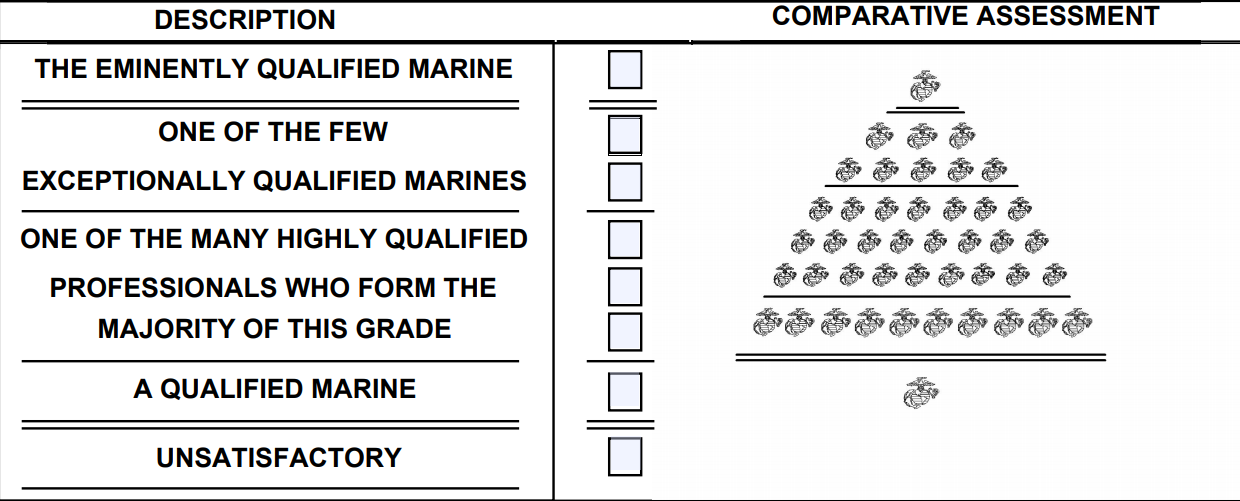
I took a long walk today by the seafront in Malahide, a charming coastal town in Dublin. The sun was shining, and there was a cold easterly wind. I wasn’t in top mental form – I’ve been in a good deal of pain following a recent surgery, and frankly, I was feeling grumpy. I thought the walk would do me good, and I had a podcast for company – Jocko Podcast 174. If you’re interested in leadership principles, I would strongly recommend a listen.
I’ve written about Jocko before, but for those of you who aren’t familiar, he’s a decorated ex-Navy Seal who, apart from many other accomplishments, was responsible for training West Coast Seal Teams as part of his career. He now runs a leadership and development training company called Echelon Front with a fellow ex-Seal, Leif Babin. His podcasts, which he co-hosts with Echo Charles, discuss leadership lessons from military history and writing, and current military doctrine.
The primary focus of episode 174 was the way in which Marines are evaluated, but the discussion was much broader than that. I spent a lot of the time I was walking laughing to myself, probably to the concern of some of my fellow walkers. The reason was not that the podcast was particularly funny, although Jocko can be amusing in his way. I was laughing at the many “a-ha!” moments in the Marine evaluation approach, and how far short of the bar I can fall in so many of the described areas.
If you’ve been working for any length of time in any industry, you’ve been through some form of performance-based evaluation system. The systems that have been used in my career have varied from the verbal to the highly-detailed, multi-page written template, to the web-based SaaS offerings that are in use in many firms today. One of the more interesting systems that I’ve read about, but never experienced, is the “Dots” mechanism described by Ray Dalio in Principles, where individuals are rated on a behavioural scale by their peers, subordinates and managers for the duration of their career with Bridgewater Associates.
The key thing about many evaluation systems is that they are administered by humans to other humans. This can give rise to a range of challenges. People are often unwilling to have hard conversations with their staff about performance issues. This can result in everyone being rated as a top performer, a problem Jocko described as being rampant in the Navy before forced-distribution curves were introduced.
Jocko then went on to provide a short review of the new Navy evaluation approach, which is based on a 1.0-5.0 scale, but which he felt was less capable than the Marine Corps “Commandant’s Guidance” evaluation form. The Marines use the same scale, but go into much more detail in the evaluation criteria, and set the bar very, very high. They force a distribution using a graph that looks like a Christmas tree.

I couldn’t possibly summarise the full two-hour podcast here, and I don’t want to, but I will pull out some of the highlights of how Marines are evaluated.
In the section on leadership, which has subsections on Leading Subordinates, Developing Subordinates, Setting the Example, Ensuring Well-being of Subordinates and Communication Skills, the 1.0 (satisfactory rating) sets a higher bar than many of us achieve in our daily lives.
For the highest levels, I will put out a few quotes to illustrate just how high the bar is set for an Exemplary Marine. In the 5.0 rating for Leading Subordinates:
Achieves highest levels of performance from subordinates by encouraging individual initiative. Engenders willing subordination, loyalty and trust that allow subordinates to overcome their perceived limitations.
The above reminds me of the approach described in David Marquet’s Turn the Ship Around – and not something that I had traditionally associated with a “command and control” style of leadership.
On Developing Subordinates:
Widely recognized and emulated as a teacher, coach and leader. Any Marine would desire to serve with this Marine because they know they will grow personally and professionally.<..> Attitude to subordinate development is infectious, extending beyond the unit.
On Ensuring Well-being of Subordinates:
<…>Widely recognized for techniques and policies that produce results and build morale. Builds strong family atmosphere.
Again, a family atmosphere not being part of what I would have associated with a requirement for a Marine leader to develop, but it is clearly part of how Marines are evaluated.
And on Judgement, which is part of the section on Intellect and Wisdom:
Decisions reflect exceptional insight and wisdom beyond this Marine’s experience. Counsel sought by all; often an arbiter. Consistent, superior judgement inspires the confidence of seniors.
It’s hard to argue that these are very high standards to aspire to. It is clear to see why at the top of that Christmas tree-like graph, there is a single representation of an individual Marine – the Eminently Qualified Marine.
Jocko went on to say that setting standards and then applying discipline to try to live up to those standards every day is what helps us in our attempts to be better humans. We have to take action (“you can’t think things better”) to raise your game. If we were ever able to hit all of the marks above a very high bar, we might even become exemplary (although that’s a very temporary position, and could only be achieved in one area at a time, I suspect :)).
I came home from my walk in a completely different frame of mind than when I set out. Jocko and the Marine Corps’ evaluation gave me just the kick in the mental pants that I needed to break out of my funk. It also reminded me that I need to more explicit about the standards I expect from myself in my life and be more disciplined in applying those standards.
In Jocko-speak – “time to get after it.”
|
|

